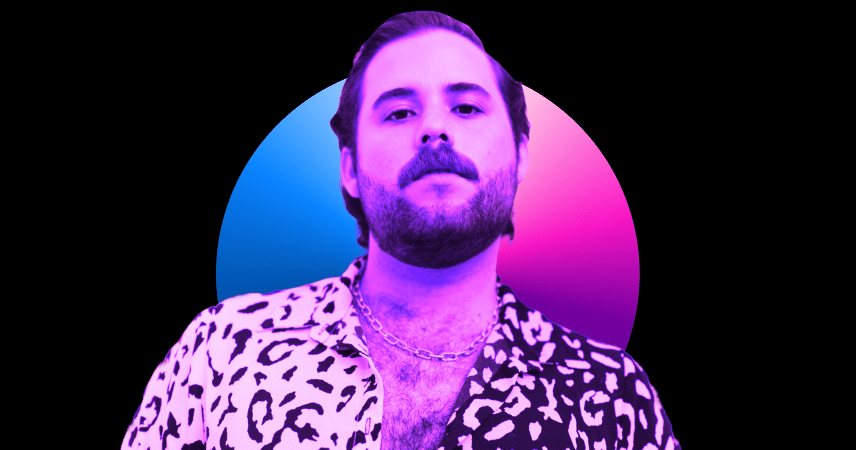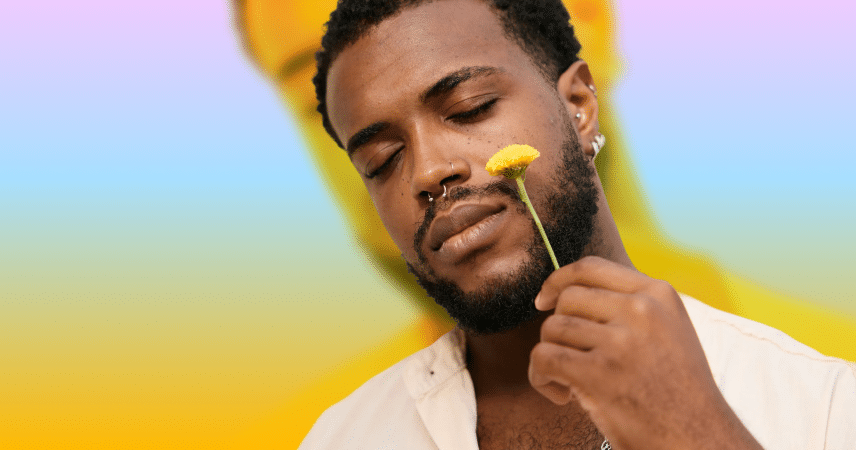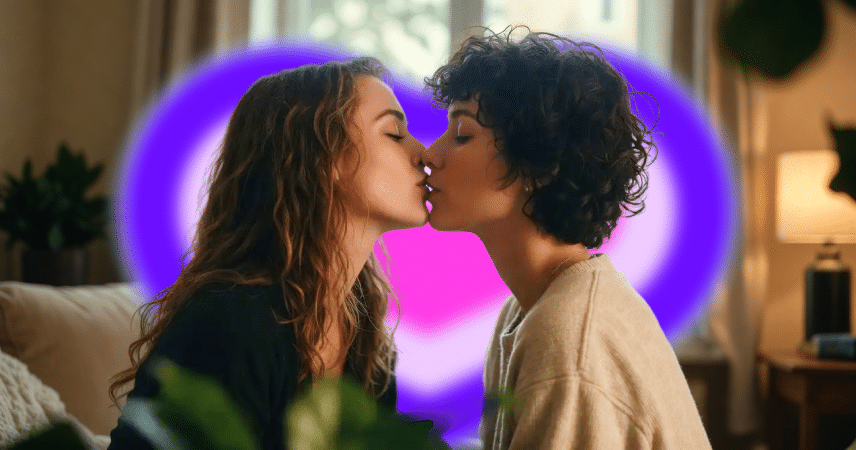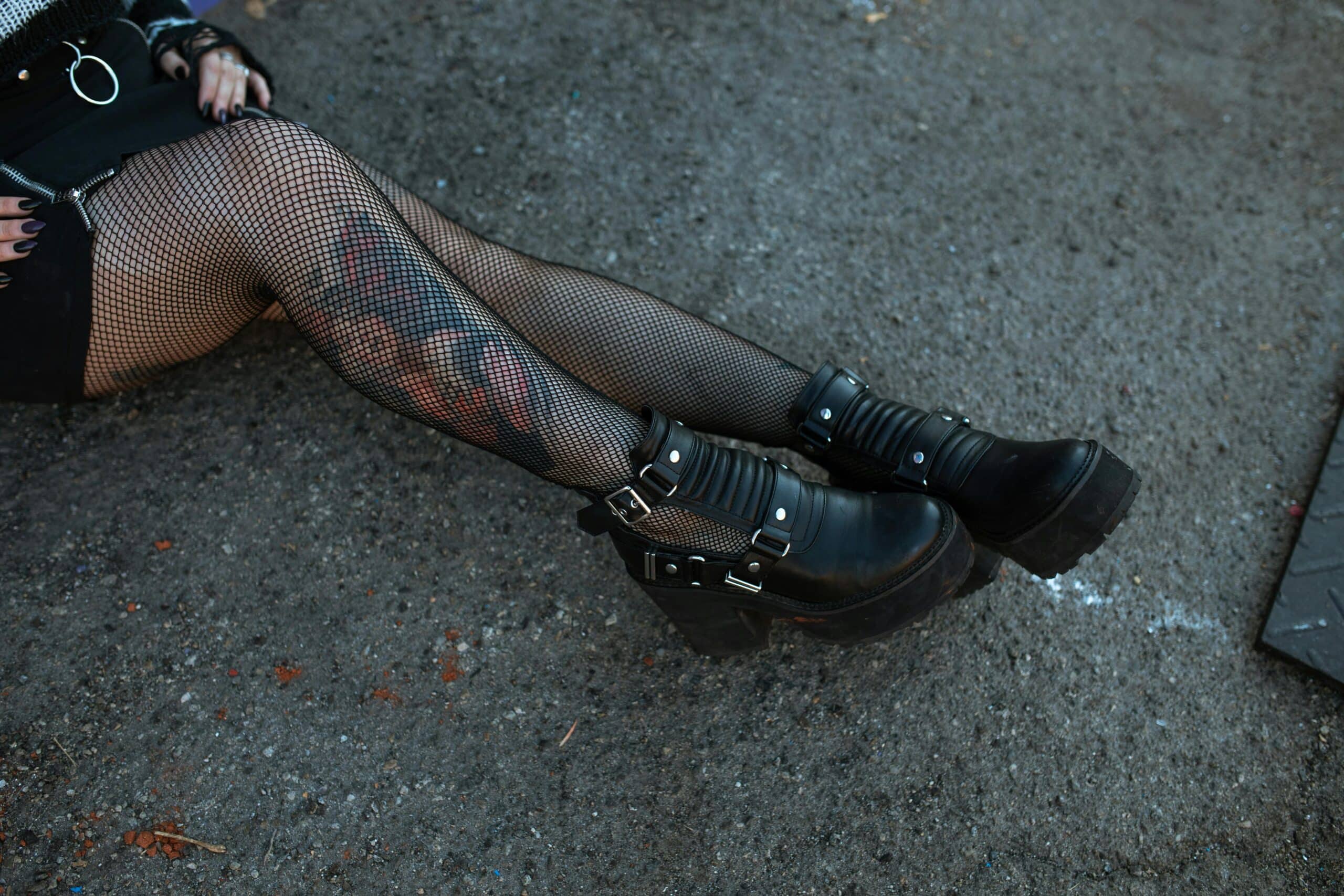The Invisible Majority: A Wake-up Call for the Culture, the Dating App Industry and the World

What Dating Apps Keep Getting Wrong About Bisexuality – And What Needs to Change:
‘It feels like we are some kind of afterthought’
That’s a response from a bisexual dating app user and it’s one we’re hearing – a lot. The message is loud and clear, bisexuality is still being misunderstood, misrepresented and often totally ignored.
In a culture rooted in progression, acceptance, validation and forward movement, how do we make those who feel like an ‘afterthought’ transition to the forefront of our minds?
According to the William’s institute and the Human Rights Campaign 50% of people who identify as either lesbian, gay or bisexual – identify as bisexual. This makes the bisexual population the single largest group in the LGBTQIA+ community. So, when we say the invisible majority, it’s meant literally.
So, when we conducted this research what was our aim? It was to improve the experience that our biggest group within the community has on dating apps, to understand their perspective and push the narrative in the right direction. So, with open arms and a newfound perspective we can say ‘We see you, we hear you, this is a space for you, and welcome home’.
Now we can serve the piping hot tea, Taimi has asked the questions, and our baddie bisexuals have answered.
Preferences – What Comes Out on Top?
We’re not basic – we’re trying to understand the basics. In the LGBTQIA+ dating sphere it’s important to understand where our users’ preferences are. In a community that combines a myriad of sexual and gender identities what is most important for our Bi+ users when using dating apps?

Gagged and Gooped – respondents show a higher flexibility in gender than in sexual orientation preferences, with 26% saying it’s not important at all. Our Bi+ users prioritise the sexual orientation of other users over their gender identity.
When Taimi asked ‘Do you think being bisexual impacts the type of relationships you’re looking for on dating apps?’ 42% say bisexuality doesn’t impact their relationship preferences, while 35% believe their bisexuality does influence their connection preferences.

We then got more specific and wanted to understand how bisexual men and bisexual women ultimately use dating apps to find their preferences.
We asked ‘do you use sexuality filters when browsing or searching? And do you use gender filters when browsing or searching?’

The mixture of answers across the board shows how diverse bisexual experiences really are. For some sexuality is just one part of the puzzle. For others, it’s central to their dating style.
Rebecca Minor, LICSW, a gender and identity therapist and the founder of Bi+ (in)visibility, a global community supporting Bi+ people in straight-presenting relationships – states:
‘Bisexuality isn’t one-size-fits-all. Some people lean more toward same-gender attraction, others toward different-gender attraction, and still others shift over time. Honoring that diversity means letting people define themselves—without policing who they love or demanding they “prove” their queerness. When society approaches bisexuality with curiosity instead of judgment, it creates space for everyone to show up authentically.’
The bottom line? Bisexuality contrary to common misconceptions – isn’t in a box. It’s a spectrum that every individual navigates in their own way.
Some Stereotypes Slay. Some Stereotypes Need to Go Away
In a dating world and landscape that is meant to be ‘more accepting than ever’ bisexual people still walk through with a neon target on their back – labeled ‘stereotype me’. Whilst rainbow capitalism reaches its peak and begs you to believe that our communities are accepted wholly and fully, the experiences of bisexual people tell a troubling truth.
As amazing as the rainbow flag littered streets that have cropped up in recent years, may seem. It can feel by some at times as virtue signaling, especially as there are still those in our communities that still feel the negative effects of stereotypes. These stereotypes lead to being typecasted into a role they never signed up to play, and where is one of the main stages for this narrative? Dating apps. So, let’s break it down.
When asked ‘what challenges, if any, do you face as a bisexual person on dating apps’ over a quarter (28.92%) responded with ‘stereotyping and stigma’.
The statistic is staggering, in a world that seems to have progressed so far, we still have so far to go.

Rebecca Minor enlightens us further on the stereotypes often faced by the Bi+ community:
‘Culture needs to move past stereotypes. Bisexuality isn’t a phase or a plot twist—it’s an identity. Too often, we’re portrayed as indecisive or promiscuous, but real representation looks like bi+ people in every stage of life: married, single, partnered with different genders, parenting, aging, thriving. When culture reflects the full complexity of our lives, it validates our existence instead of questioning it.’
What Stereotypes Do Bisexual People Face?
The broken record that should’ve never been a hit and rather disposed of, dead and buried a long time ago – bisexual people are confused or just experimenting.
Not only does this stereotype invalidate the entire bisexual experience, but it also creates prejudice towards those who identify with Bisexuality and guess what – it isn’t founded in one ounce of truth. Now that’s the tea.

The truth is that 36.75% of bisexual users want monogamous relationships and 19.28% want long term committed relationships. So, the stereotype implying that bisexual people prefer casual and experimental relationships is unfounded and a stretch. So much of a stretch that the stereotype will never be in reach.
Furthermore, the majority of Bi+ users use dating apps for a variety of reasons however amongst both bisexual men and women the top priority is for romantic relationships.

Now to die on the hill of the stereotype that bi+ are confused or experimenting – isn’t just invalidating to those who seek monogamous and long-term relationships. It also fetishizes and invalidates the experience of those who do want to explore polyamorous and open relationships.
A quarter of our respondents expressed a desire to explore both polyamorous and open relationships, which should be an experience and preference met without judgement. This desire isn’t exclusive to the Bisexual community; it can be a personal preference and experience favored by individuals across all communities and identities.
So, when we make baseless assumptions and apply them to an entire community, we should focus on the age-old idiom – to assume is to make an ass out of ‘u’ and ‘me’.
Feeling Understood: The Bi Dating Struggle is Real
The number one challenge bisexual users face on dating apps is finding mutuals who they feel understand bisexuality. A whopping 36% of respondents cited this as their top frustration.
Now this type of revelation is astounding, quite frankly it has us gagged – negatively. It shows a huge lack of awareness, understanding and bigoted discourse surrounding the bi+ community.

This challenge is then closely followed by:
- Stereotyping at 29%
- Identity assumptions at 27%
- Judgement at 27%
Now the difference in these is fractional. But the negative impact and everlasting effect is factual. This research suggests that for Bisexual users, this isn’t just about connecting with somebody cute or hot. This is about navigating layers of self-doubt, insecurity, years of invalidation, and utter disappointment as your sense of self is scrutinized and diminished. For some bisexual users this means constant emotional labor to be seen, heard and validated when using dating apps.
Now it may seem all very doom and gloom, and utterly disastrous, but over time dating apps have become somewhat of a safer space for the Bi+ community. During our research we found that – 26% of users say they don’t face major dating challenges – although positive, this figure still requires a moment for reflection. Whilst for some the uphill battle has relented, for the rest it continues. Meaning in the world of dating apps there is still work to be done.
The answers to our question – ‘what challenges, if any, do you face as a bisexual person on dating apps’ are not mutually exclusive. They overlap and often lead to the same effects and outcomes in real life for the Bi+ community.
Destroying Misconceptions: Serving Miley Cyrus – Wrecking Ball
During Taimi’s research we asked – What’s the most annoying misconception about bisexuality?

The top two answers:
- Confusion or indecision at 34%
- Just experimenting at 29%
This means that more than 60% of bisexual users are told that their identity, their sexual orientation, who they are is: temporary, performative or rooted in some kind of emotional immaturity.
As if being bi isn’t a real identity that doesn’t deserve validation and acceptance. Spoiler alert it is a real identity, and it does deserve to be validated, accepted and embraced. This kind of micro-invalidation adds up, it compounds over time and filters into families, friendships, workplaces, businesses and dating apps.
Rebecca Minor again comments:
‘The biggest misconception is that bisexuality equals untrustworthiness. Attraction to more than one gender doesn’t mean disloyalty—trust is about values, not orientation. Yet this stereotype continues to harm bi+ people by casting doubt on our relationships. To dismantle it, we need to name it when we see it, highlight healthy and committed bi+ partnerships, and push back against the myth that queerness undermines integrity.’
21.85% of Bi+ dating app users feel there is a lack of inclusivity features on dating apps. So, when we say these types of misconceptions, assumptions and stereotypes bleed into the way we create dating spaces, we mean it. Bi+ people deserve a safe space to date and to be included. Again, as we strive towards a culture that cultivates acceptance and validation this should be mirrored in our daily life. Including the apps we use. However, to action this first we need further understanding.
Under Pressure: Proving You’re Bi
Just like the Queen song that re-entered the charts shortly after Paul Mescal in aftersun left us gagged, as we stared at the screen whilst he danced in an emotionally charged moment, that was still somehow hot. The title of this oldie but goldie tune still applies to the Bi+ community when it comes to seeking validation of their sexuality.
More than 1 in 3 respondents feel under pressure to prove their identity. So, although we can applaud the progression for the 56% of bisexual people who feel they no longer need to prove their sexuality. There is still a large weight carried daily by the remaining 33% who state they do.

This pressure to prove, can turn toxic (and no not slay Britney circa 2003 toxic) like negative, life altering toxic. 59% of Bi+ people have experienced relationship tensions linking directly to their bisexuality. This figure indicates a common challenge experienced throughout the Bisexual community and a clear problem that needs to be resolved for Bisexual people to feel validated and safe whilst dating and whilst in relationships.
Bisexual Visibility – It’s Within Reach
A brilliant 70% of bisexual users on dating apps feel comfortable being visible and openly Bi+ with only 10% refusing to disclose their sexuality and orientation.

This means that most Bi+ users feel they can own who they are, be authentic and reclaim their identities. This also means that dating apps can be a clear actor and catalyst for visibility.
This is especially true for LGBTQIA+ dating apps. When asked – How comfortable are you specifying your sexuality on a dating profile to be visible for potential mutuals?

58% responded saying they felt accepted and validated on LGBTQIA+ dating apps. However, 42% still reported feeling invalidated or as ‘unsure’. This shows that almost half of the community still feel unheard and unseen. A staggering number of people who are forced to question themselves daily. In queer spaces bisexual people still feel like they don’t belong – that is a wakeup call for all of us.
One of the reasons for this can be correlated to how dating apps represent bisexual people. 36.36% of bisexual men and 36.73% of bisexual women feel they’re not really represented or represented well at all on dating apps. Now this does not serve and it doesn’t slay – all members of the LGBTQIA+ community deserve to feel well represented in all areas of their lives and especially when they are searching for safe spaces, validation and acceptance on dating apps and amongst their community.

Limitations – Lets Break Them
We want to serve Queen Beyonce in the Hold Up music video wielding a baseball bat when it comes to breaking Bi+ limitations on dating apps, so Taimi asked:
Are there dating limitations on Bisexual users?
Positively 50% of bisexual users stated they felt unworried about limitations on mutuals due to being bisexual. Which is a great insight, however it still shows room for improvement. 35% of users are unsure about potential limitations on mutuals, which shows an existing anxiety surrounding their ability to connect on dating apps.

The great news is that 58% of Bisexual users on LGBTQIA+ dating apps, feel that by being a part of the Bi+ community allows them to feel connected and an active member of the wider LGBTQIA+ community. This is reflected in the number of Bisexual users who specifically download and actively use specified LGBTQIA+ dating apps such as Taimi, in comparison to non-specified platforms.

Straight Spaces & Queer Spaces – What’s the Difference?
When asking members of the Bi+ community if they considered themselves a part of the LGBTQIA+ community, 65.2% of Bisexual men and 83.6% of Bisexual women said they considered themselves a part of the wider community.

Then when asked if they feel their sexuality is understood differently in queer vs straight spaces 69.95% of bisexual men responded that they felt it was definitely or somewhat and 56.99% of bisexual women reported the same.

This indicates high engagement in specific queer contexts. Meaning apps like Taimi have a clear role in the community, and act as a safe space for Bi+ people. The LGBTQIA+ culture requires spaces for the community to access. Otherwise, how else will the community access content that serves and slays in a way that only the gays, girls, guys and everything in between would understand.
Context matters. In queer spaces bisexuality is celebrated or nuanced in a way that isn’t always reflected in straight spaces.
Now Where Do Our Bisexual Baddies Go When Looking for Love, Lust and Whatever They Fancy?

Bisexual Men:
- 40.91% use both LGBTQIA+ and general dating apps
- 38% use exclusively LGBTQIA+ dating apps
- 21.21% use general dating apps
Bisexual Women:
- 42.35% use both LGBTQIA+ and general dating apps
- 41.84% use exclusively LGBTQIA+ dating apps
- 15.82% use general dating apps
Most Bi+ users find solace and safety in spaces they feel the most seen and understood. But is it that simple?
Taimi asked How well do dating apps represent bisexual people like you? Most users feel that dating apps do not adequately represent them. This is especially noticeable among women. Now these figures are coming in clutch and painting a picture of the Bisexual experience that is founded in ignorance and judgement. Numbers are great for understanding but do you know what’s even better? Hearing the words straight from our users.
Here are some examples from our Bi+ community when asked ‘What do dating apps get wrong when it comes to representing bisexual people?’
Users reported:
- Being shown predominantly male profiles, even when they express interest in women or other genders
- Dating apps incorrectly assume that bisexual people are interested in polyamorous or open relationships
- Apps and users mix bisexuality with other identities or make incorrect assumptions about what bisexuality means
- Bisexual people feel invisible or treated as an afterthought on dating platforms
The writing is on the wall, and no were not referencing queer icon Sam Smith’s best-selling hit – what we mean is we can all do better. With this research the goals and aims of dating apps become clear and allow us to change the perspective that our Bi+ users are an afterthought and instead embrace the community creating a focus on inclusion.
What’s the difference for Bi+ users on dating apps between those that are LGBTQIA+ focused and those that are general. Most Bi+ users reported feeling significantly more understood in queer spaces when compared with straight spaces. It should be a basic human experience to feel understood within and outside of your community. When one group of our community feels misunderstood that means all of us our misunderstood and until we do better, we must keep asking the questions and hearing the answers.
Too Gay for Straight Spaces, Too Straight for Spaces – So Where Do We Go?
How, in the words of our queen and savior Hannah Montana do we give our Bi+ community the best in both worlds?
Rejection is faced for Bi+ people from both communities. Both spaces make assumptions about bisexual behavior but in different ways.
In straight spaces it is reported that:

Whereas in queer spaces it is reported that:


It’s a sad reality, and one that needs to change. Considering this, what can we do? Assumptions, stereotypes, unsafe spaces – sashay away. Understanding, validation, spaces to be seen – Shantay you stay.
The Value of Community Connection
As with all identities within the LGBTQIA+ community Bisexuality does withhold some advantages when it comes to the sphere of the dating world. For Bisexual people the ability to explore a variety of connections has been cited to be a great advantage. It goes without saying that freedom is within a variety of opportunities and for bisexual people it is incredibly important they feel they can access a magnitude of connections so they can find their very own safe space – and those who understand and validate their identities.
Heartwarmingly, ‘finding like minded people’ comes in a close second, as one of the greatest advantages. This emphasises the value of community. For those who face prejudice and invalidation in regards to who they are, and who they identify as – this is of critical importance to understand and recognise when we are creating safe spaces for Bi+ on dating apps.

Rebecca Minor gives great insights into how Bi+ value community and the safe space it provides:
‘Community connection is essential for bi+ people to feel seen and supported. So many of us feel invisible—either “not queer enough” in LGBTQ+ spaces or “too queer” in straight spaces. Being in community interrupts that isolation. It’s where people finally hear their experiences reflected back to them, where they can exhale and stop questioning themselves. Community doesn’t just validate our identities—it equips us to push back against erasure and stigma, reminding us that we’re not alone and that our identities are worth celebrating.’
The Authentic Spaces to Be You
Our Bi+ users reported facing discriminatory or prejudicial behaviours on dating apps. A sad reality that many face. Whilst anyone who falls victim to this behaviour should be protected and validated it was reported highly amongst Bisexual women.

Now the gag is – whilst many people fell victim to prejudice on dating apps they are also one of the safest spaces for Bi+ people. 42% of users reported being more open about their bisexuality on dating apps than elsewhere including social media and in person interactions. Dating apps serve, finger clicks – a purpose. They are spaces where Bi people can be expressive and authentic. They are important, so we must strive towards creating the best experience for our bisexual baddies and continuing serving a space where they feel at home.

To Be Seen, to Be Heard, Is to Exist Equally
We all know what it feels like to be able to finally exhale, to be able to live as your true authentic self. It is a great feeling, almost as good as wearing your best outfit and strutting down the street to Von Dutch right?
Well at Taimi we loved hearing about what it felt like for our Bi+ users when they felt seen, heard, represented and loved. We specifically asked: What does it feel like when you truly feel supported or seen by others?
Our users told us, it felt like being accepted, specifically that they felt:
- “Happy in a sense that they understand and support me just the way I am”
- “Accepted, celebrated and nurtured.”
- “Feels like there is no judgement or weird questions about me being bisexual”
That they felt the ability to be seen, to be their true self:
- “It feels like love and freedom.”
- “To be accepted, to not feel alone or like your keeping who you are bottle up to yourself. You can be free and your true self.”
- “It feels like I can be myself without any filter”
They also reported feelings of deep connections and belonging within our community:
- “I feel happy, being seen is just a very important and special thing. When people understand me I make it a point to be understanding but when people see me, it’s just heavenly.”
- “it feels weightless like all the heaviness is some how lifted when i feel truly supported and seen by others , i dont feel alone”
- “The feeling of actually belonging, to be heard and understood”
And finally, like all people should exist they felt they were able to finally breathe:
- “When I truly feel supported or seen by others, it feels like I can breathe easier. There’s a calm confidence that comes from being accepted as I am.”
- “When I truly feel supported by others, it’s like a weight I didn’t even realize I was carrying suddenly lifts.”
- “I don’t have to worry about explaining myself”
When we hear this from our Bi+ users our hearts light up. There is nothing more important than for all people, all communities, all identities to feel loved, accepted and given the opportunity to slay every single day.
Come in Clutch and Conclude
Being in the Bi+ community shouldn’t equal living in a weird limbo land between two worlds, two communities and two sides. It should be about serving in the best of both worlds. However, for many of our Bi+ users that’s exactly how it feels. Never ‘queer enough’ for the LGBTQIA+ community and always too queer for the straight one.
Taimi’s research shows that for many Bi+ folks the struggle is very real. Whether it is through stereotypes or having to prove the validity of your identity in queer spaces, Bi+ people are fed up and tired of constantly being invalidated, doubted, hypersexualized and misrepresented.
And let’s serve the piping hot tea – representation alone isn’t cutting it. Our Bi+ users are looking for real recognition, real connections, real stories, real connections and real spaces. All of which affirm exactly who they are, not just checkbox visibility. They want and they deserve to connect like everyone else – with the majority expressing the exact same desires as every other community. The trope ‘bi equals wild and casual’ needs to leave. Bi+ people deserve to exist equally alongside every community.
The most heartening revelation throughout this research has been that when Bi+ users do feel seen and accepted, especially on LGBTQIA+ specific platforms like Taimi, they describe it as finally being able to breathe. This isn’t just about finding a connection, or some cute guy or gal. This is about Bi+ people being able to live, breathe and exist in peace. It is about a large group of powerful people being able to live authentically. It is about fun and freedom.
And honestly that is exactly what Taimi is here for – to provide a safe, accepting and loving home.



